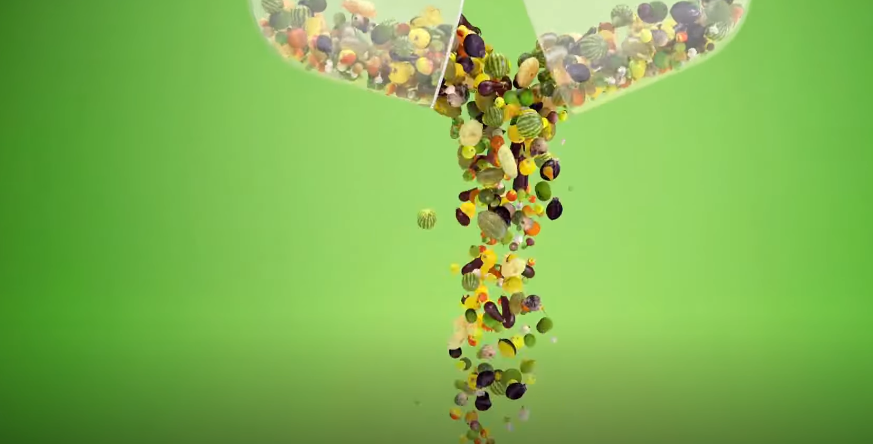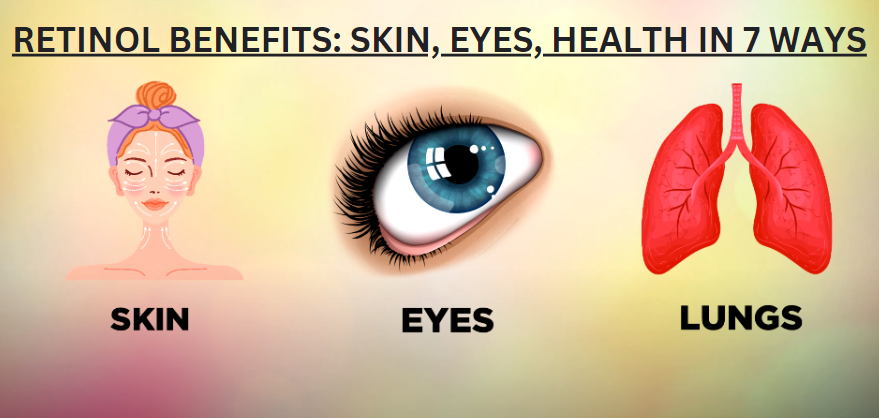Introduction
Have you ever considered what keeps your heart pumping strong and steady day in and day out?
Well, prepare to dive into a world where these tiny warriors play a crucial role in maintaining our arteries and spans.
You know, it’s easy to get caught up in the hustle and bustle of life, often neglecting the very engine that keeps us going—our heart.
Actually, clogged arteries, also known as atherosclerosis, occur when fatty deposits accumulate inside the artery.
According to the American Heart Association, atherosclerosis-related disease is the leading cause of mortality in the United States.
But fear not, because in this article, we’re about to uncover seven mighty vitamins that can play a superhero role in maintaining clear and smooth arteries.
Get ready to discover some surprising sources of these vitamins and learn how they can contribute to your overall well-being.
Number 1. Vitamin C

First up on our journey to healthier arteries is the ever-popular vitamin C, the superhero of antioxidants.
We’ve all heard how vitamin C helps fight off the sniffles, but did you know it’s also a rock star when it comes to your heart health?
According to a study published in the American Journal of Clinical Nutrition, getting your daily dose of vitamin C can help improve the function of your endothelial cells, those tiny powerhouses lining your arteries.
Think of these cells as the smooth operators that ensure your arteries stay relaxed and flexible.
When they’re happy, your blood flows smoothly, reducing the risk of blockages. But wait, there’s more.
Vitamin C also takes on the role of a fierce inflammation fighter. It helps to calm down those fiery inflammation markers that can wreak havoc on your arteries.
Less inflammation means less chance of plaque buildup and narrowing arteries. However, it’s important to note that while vitamin C is generally safe, taking extremely high doses in supplement form can lead to side effects like diarrhea.
So, while munching on citrus fruits, strawberries, and bell peppers is a tasty way to boost your vitamin C intake, remember that moderation is key.
Number 2. Vitamin D

Moving right along on our journey to healthier arteries, let’s shine a spotlight on vitamin D.
Did you know that vitamin D could also play a pivotal role in keeping your arteries healthy?
According to research published in the Journal of the American College of Cardiology, a deficiency in vitamin D could be linked to a higher risk of heart disease.
It turns out that this vitamin isn’t just content with ensuring strong bones; it also flexes its muscles in the realm of cardiovascular health. How does it do this, you ask?
Vitamin D has an impressive ability to reduce inflammation, a key player in the game of artery health.
By taming inflammation, vitamin D can help prevent the buildup of plaque in your arteries, which can lead to those dreaded blockages.
Moreover, it aids in regulating blood pressure, another critical factor in maintaining a healthy cardiovascular system.
But like all good things, there’s a catch. Too much of a good thing can sometimes not be so good.
Excessive vitamin D intake can lead to a condition called hypercalcemia, where there’s too much calcium in your blood.
This can lead to a range of issues, from nausea to kidney problems.
So, while soaking up some sun and enjoying vitamin D-rich foods like fatty fish and fortified dairy is great, remember that balance is the name of the game.
Number 3. Vitamin E
Now, let’s dive into the world of vitamin E, a true defender of your arteries’ well-being. According to recent studies in the Journal of Nutritional Science and Vitaminology, vitamin E’s antioxidant ability could help prevent LDL cholesterol from oxidizing.
Why is this important?
Because oxidized LDL cholesterol is like a ticking time bomb, ready to trigger inflammation and plaque buildup in your arteries, By swooping in to neutralize those harmful free radicals, vitamin E helps keep your arteries clean and clear.
But here’s the lowdown on the flip side. Vitamin E is like a double-edged sword.
While it offers a protective shield against artery-clogging oxidation, taking excessive vitamin E supplements can tip the balance.
High doses might interfere with blood clotting, which could lead to bleeding issues.
So, it’s best to get your vitamin E fix from natural sources like nuts, seeds, and vegetable oils.
In the grand scheme of things, vitamin E is like the guardian angel of your arteries, shielding them from harm while also reminding us that moderation is key.
Whether you’re munching on some almonds or drizzling olive oil on your salad, know that you’re giving your arteries a much-needed boost with this antioxidant hero.
Number 4. Magnesium

Magnesium, is an essential mineral that plays a crucial role in cardiovascular well-being.
Unfortunately, deficiency is common, with estimates indicating that 75% of US adults fall short on intake. Addressing this shortage can provide major benefits for heart health.
Magnesium helps regulate blood pressure by acting as a natural calcium channel blocker.
It allows blood vessels to relax, lowering blood pressure. Supplementation of around 400 milligrams per day has been shown to reduce high blood pressure, a major risk factor for heart disease.
The mineral also helps control inflammation levels in the body. Chronic inflammation damages blood vessels and can lead to atherosclerosis.
Getting adequate magnesium minimizes inflammatory markers like CRP.
Additionally, magnesium helps stabilize heart rhythms and limits calcification in the arteries.
Its antistress effects decrease cortisol, linked to high cholesterol and plaque buildup. Magnesium also improves insulin sensitivity, which is important for diabetics at risk of cardiovascular disease.
With its multitude of protective mechanisms, getting enough magnesium daily is vital. Consume magnesium-rich foods like leafy greens, nuts, seeds, and whole grains.
If deficient, supplementing with doctor supervision can reap huge heart benefits.
Number 5. Vitamin B9

Vitamin B9, also known as folate, quietly works wonders behind the scenes to keep your cardiovascular system in check.
According to the Journal of the American Heart Association, folate plays a significant role in reducing homocysteine levels, a factor that can lead to artery damage and increase the risk of heart issues.
But here’s the catch: Let’s talk about side effects. While fat is generally safe and essential, taking too much from supplements can mask vitamin B12 deficiency symptoms, potentially leading to nerve damage.
However, getting your folate fix from natural sources like leafy greens, legumes, and fortified grains is a smart way to avoid any pitfalls.
So the next time you’re enjoying a hearty spinach salad or digging into a plate of lentils, remember that you’re not just nourishing your body; you’re also giving your arteries a boost in their battle against the odds.
Number 6. Vitamin K1

Number six, Vitamin K1, while not as famous as its cousins, plays a pivotal role in keeping your arteries in top shape.
Research has shown that vitamin K1 supports proper blood clotting, which is crucial to maintaining a healthy cardiovascular system.
But its benefits don’t stop there. Vitamin K1 also helps prevent the calcification of arteries, ensuring they remain flexible and free from blockages.
However, like any nutrient, moderation is key. Taking excessive vitamin K1 supplements can lead to interactions with certain medications.
So it’s always a good idea to consult your healthcare provider before making any drastic changes to your diet or supplement routine.
So whether you’re enjoying a bowl of leafy greens or adding some parsley to your dishes, know that Vitamin K1 is quietly working behind the scenes to support your artery health and overall well-being.
Number 7. Vitamin B12

And now for the grand finale in our journey of artery-nurturing vitamins, number seven, Vitamin B12.
While it often takes the back seat, this vitamin holds some powerful keys to a healthier cardiovascular system.
Speaking of keys, let’s unlock some research findings. Studies like the one featured in the Journal of the American College of Cardiology have highlighted vitamin B12’s role in supporting endothelial function.
These are the cells that line your arteries, and when they’re happy, your arteries are too, allowing blood to flow smoothly.
Of course, let’s not forget the side effects. Vitamin B12 is generally well-tolerated, but in rare cases, some individuals might experience allergic reactions or skin conditions.
So while B12 is important, it’s always wise to keep an eye out for any unexpected reactions, especially if you’re trying out supplements.
So whether you’re indulging in a delicious serving of meat or savoring a hearty omelet, know that you’re not just enjoying a tasty meal; you’re also giving your arteries a little extra love with Vitamin B12.
Conclusion
And with that, our journey through these artery-friendly vitamins comes to a close. Remember, a heart-healthy diet isn’t just about what tastes good.
It’s about giving your body the tools it needs to keep your cardiovascular system running strong and smooth.





